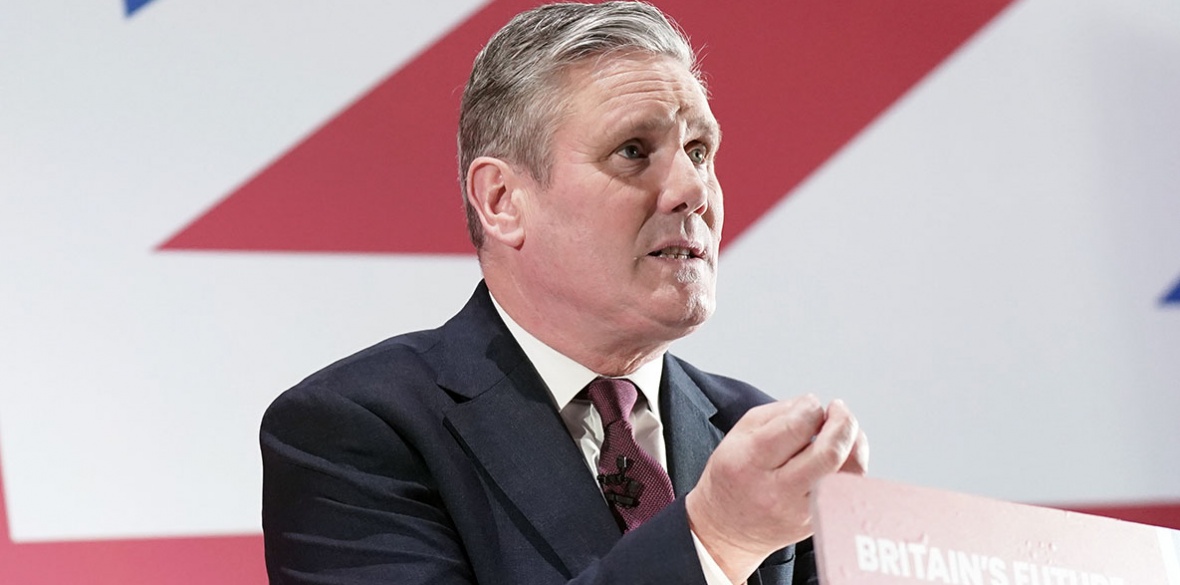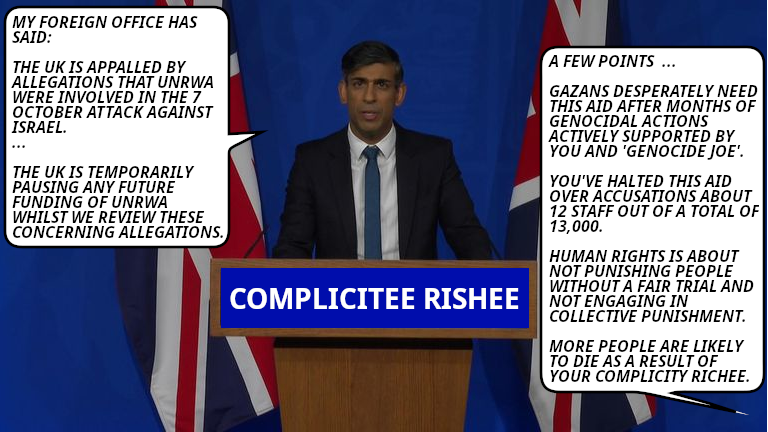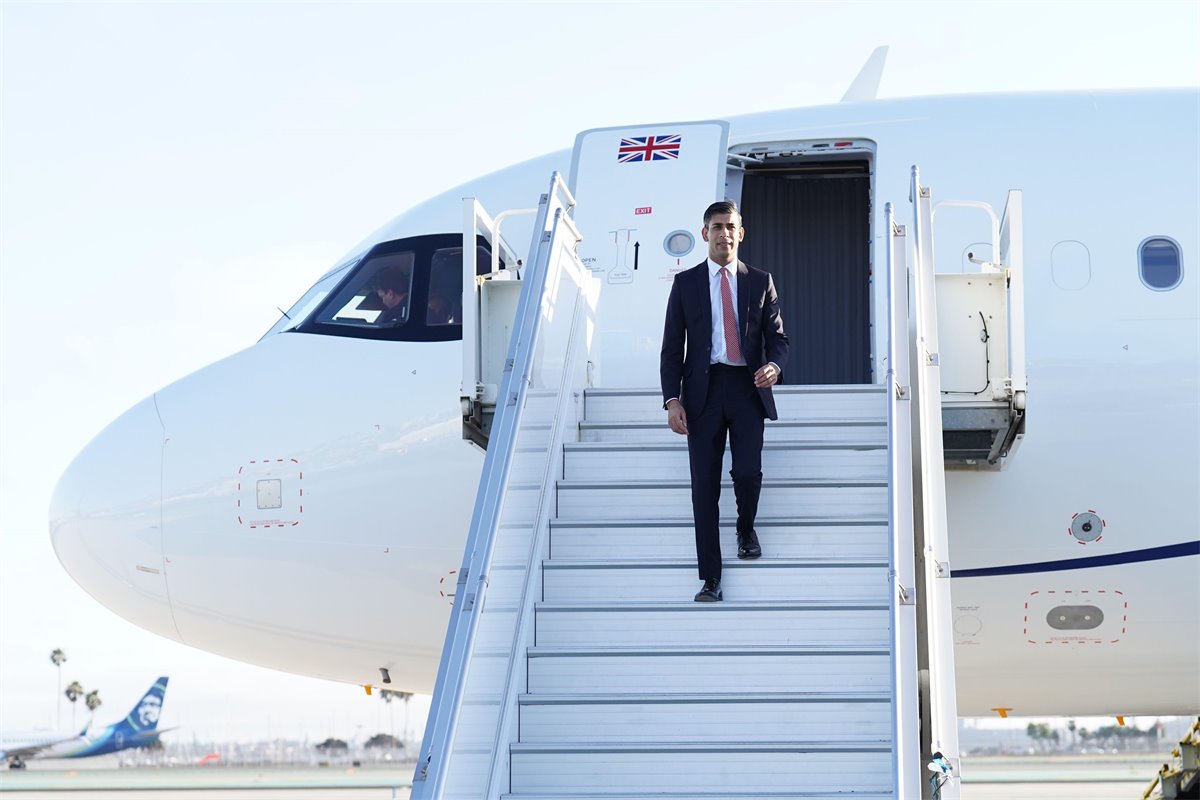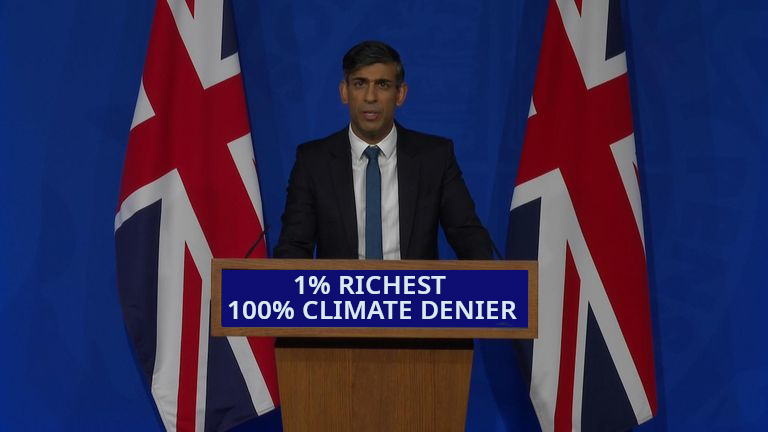Sunak demands ban on protests at MPs’ homes and crackdown on ‘mob rule’
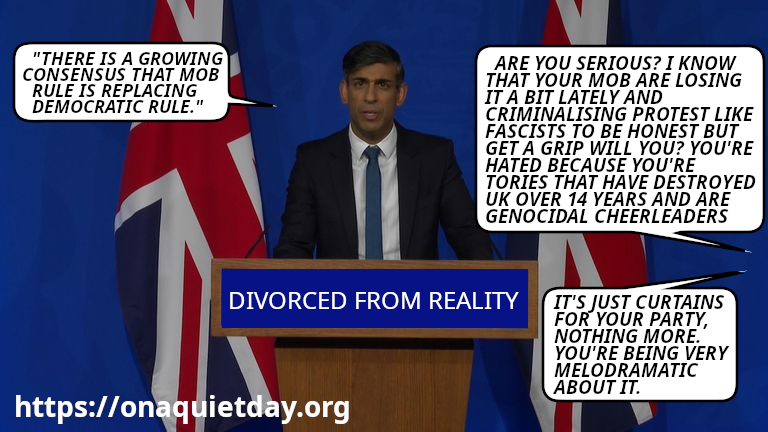
Ministers and senior police sign ‘democratic policing protocol’ to control protests outside parliament, town halls and parties’ offices
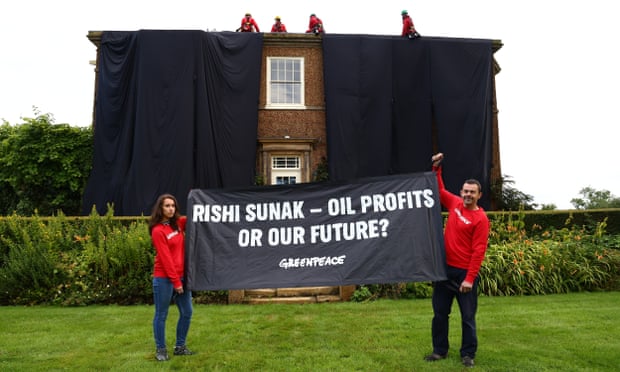
Downing Street said ministers and senior police agreed to sign up to a new “democratic policing protocol” that would see police treat demonstrations outside MPs homes as “intimidatory”, a minimum standard of police response to demonstrations against MPs and guidance for officers policing protests and other “democratic” events.
During the meeting Sunak told police chiefs they had to demonstrate they would use the powers they already have, saying it was “vital for maintaining public confidence in the police”.
In a stark assessment of the UK’s political processes, he added: “There is a growing consensus that mob rule is replacing democratic rule. And we’ve got to collectively, all of us, change that urgently.
“But we also need to demonstrate more broadly to the public that you will use the powers you already have, the laws that you have.”
He said the policing protocol, which commits forces to additional patrols and “provides clarity that protests at elected representatives’ homes should be treated as intimidatory”, would protect democratic rule.
…
dizzy: Politics is by it’s very nature confrontational and argumentative between opposing parties and perspectives. People are going to disagree and demonstrate that disagreement. There is plenty to object to with Sunak’s party and politics – his continuing destruction of the climate, cheerleading and actual support of – actual complicity in – Israel’s Gaza genocide, relentless attacks on democracy and the right to protest, further destroying the NHS, failing to tax the rich, etc. Sunak shouldn’t be in politics – and he actually won’t be soon – if he’s not willing to tolerate that.
